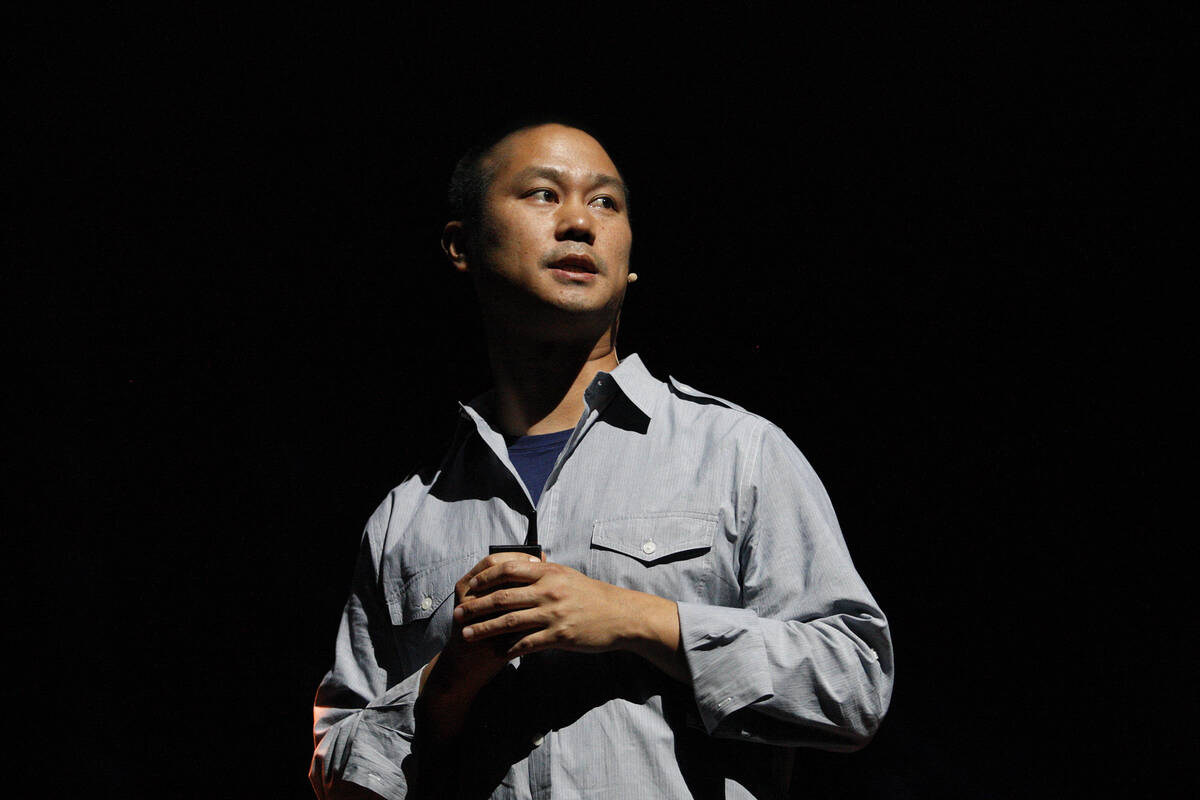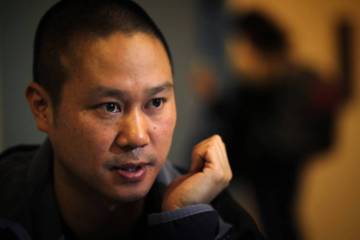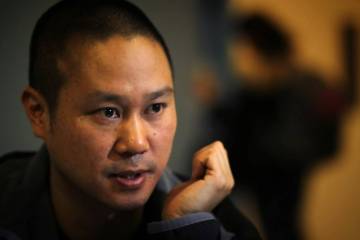Months after Tony Hsieh’s will surfaced, lawyers still can’t authenticate it
Several months after Tony Hsieh’s will surfaced, lawyers for the late tech mogul’s estate still haven’t confirmed its authenticity, a new court filing shows.
Attorneys Dara Goldsmith and Vivian Thoreen wrote in court papers last week that the court should require more evidence before admitting the purported will to probate because they haven’t been able to “verify basic information that would bear on the veracity and authenticity” of the document.
As seen in their filing Thursday in Clark County District Court, the attorneys outlined wide-ranging efforts to investigate the will — which, in a surprising and bizarre turns of events, was filed in court under still-mysterious circumstances more than four years after Hsieh’s death.
The estate’s legal team looked for any prior references to the will or people named in it, including by analyzing client files obtained from other attorneys who worked with Hsieh; internal documents and communications; depositions in litigation involving the estate; and Hsieh’s calendars.
They tried to locate and contact witnesses who signed the will and the person who wrote a letter describing how it was found. They also analyzed courthouse records on the initial lodging of the will and searched public records for trusts named in the document.
The end result: The lawyers have basically come up empty.
Document surfaces
Hsieh, the former CEO of online shoe seller Zappos and face of downtown Las Vegas’ economic revival, died in 2020 at age 46 from injuries suffered in a Connecticut house fire.
Hsieh’s father, Richard Hsieh, is the court-appointed administrator of his son’s estate, and the dad’s legal team stated multiple times in court filings that the younger Hsieh died without a will.
However, law firms McDonald Carano and Greenberg Traurig filed court papers in April with a copy of Tony Hsieh’s seven-page last will and testament — dated March 13, 2015 — and a letter describing how it was found. The firms represent named executors in the will.
The will was discovered in February in the personal belongings of the late Pir Muhammad, according to the letter, which stated Muhammad suffered from Alzheimer’s disease and was not aware Hsieh had died.
The letter did not say when Muhammad died or where he lived, nor did it provide any details about his career or his association with Hsieh.
‘Exclusive possession’
Hsieh had named Muhammad an executor in the will and gave him “exclusive possession” of the original, in part to prevent anyone from destroying it, the will indicates.
But several people who knew Hsieh have said they never heard of Pir Muhammad, and the Las Vegas Review-Journal found nothing that linked the name to Southern Nevada or confirmed who he was.
Moreover, probate and estate-planning lawyers have said the will is confusing, clunky and features language and details they don’t normally see in such documents.
A person named Kashif Singh wrote the letter explaining the will’s discovery. No contact information or details on Singh were provided in the initial filing, though according to McDonald Carano and Greenberg Traurig, he was Muhammad’s grandson.
Those firms filed court papers in June seeking to admit Hsieh’s will to probate, to have Nevada attorneys Robert Armstrong and Mark Ferrario appointed as co-executors of the estate, and to remove Hsieh’s father as the administrator.
According to court papers, Armstrong and Ferrario were surprised to learn they were named in the will, as they hadn’t worked on Hsieh’s estate-planning documents and had never even met him.
‘Impossible to authenticate’
As part of the filing in June, the law firms included a heavily redacted copy of Muhammad’s death certificate, without explaining how they learned of it.
The death certificate, from Pakistan, shows that Muhammad was a Pakistani national who was born in 1931 and died in October 2022 — more than two years before Hsieh’s will was found among his personal possessions, as explained in the letter.
Muhammad’s address, place of death, and other personal information were redacted from the death certificate.
Attorneys for Hsieh’s estate have argued in court papers that the death certificate shows only that a person named Pir Muhammad died but does not show that it was the same Pir Muhammad who was named in the will.
The Review-Journal previously found more than 1,000 profiles on Facebook with the name Pir Muhammad. Many of them said they lived in Pakistan.
In their court filing last week, lawyers for the estate said the alleged death certificate is “impossible to authenticate or verify.”
Overall, they wrote that none of their efforts had so far yielded “evidence or facts” that let them “verify or confirm the authenticity” of the purported will.
Contact Eli Segall at esegall@reviewjournal.com or 702-383-0342.







































